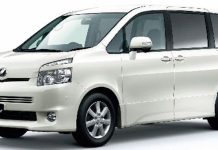In June 2014, the Daily Graphic carried a story under the headline, “Solar power for traffic in Accra.” According to the story, a good number of traffic lights in Accra were to be powered by solar energy.
That year, the Daily Graphic report we are referencing said traffic lights at intersections, in areas such as Nationalist Park, American House, Kawukudi, Flagstaff (now Jubilee) House and Fiesta Royale Hotel were being ran on solar energy.
Solar energy involves the conversion of sunlight into electricity, by either using photovoltaic cells (PV) or concentrated solar power (CSP). The CSP systems use lenses or mirrors, and a tracking device to focus a large area of sunlight into a small beam. PV converts light into electric current using the photoelectric effect.
The report said that the move had come about as the Department of Urban Roads (DUR) turned to the renewable energy source as a means to eliminate chaos at road intersections in the city, often caused by power outages that render traffic lights non-functional.
We must commend the then government for rolling out such a laudable initiative, which meant that the pressure on the national grid would be reduced because the solar system derives its source of power from the sun to charge its batteries to operate the traffic lights. In this age of energy conservation, there is no doubt that solar energy is a sure way to provide an uninterrupted power supply.
Experts say solar power could last for days without sunshine, as the batteries conserve excess energy to be used on days that are not so sunny.
Yes, the cost to purchase the solar panels to be fixed on all the traffic lights may be huge, but it is more economical than relying on electricity. The cost of maintaining solar panels is also cheaper as compared to electricity.
We have observed that several of the traffic lights are still on the national grid, so anytime there is a power outage, the traffic lights are rendered unfunctional. Also, some work for a short period and then stop functioning.
Yesterday, at Nii Boi Town, Accra, the traffic light was not functioning due to lights off, a situation that created chaos for vehicles and pedestrians on the N1 Highway, an extension of the Tema-Accra motorway, which connects to the Central Region and beyond.
This tells you how busy that road is, coupled with residents in and around Abeka, Lapaz, Nii Boi Town, and surrounding areas that use the NI highway.
It is typical in Ghana that some drivers do not respect zebra crossings, even in few places with zebra crossings, let alone where there are no zebra crossings and the traffic lights are not functional, because there is no power from the national grid.
This is of grave concern to us, as it affects the movement of motorists and pedestrians. The National Roads Safety Commission tells of the sad story of pedestrian knockdowns, some of which are attributable to no traffic lights, non-functional ones or sheer disregard of the traffic light by some pedestrians and drivers.
The Chronicle will recommend that government revisits the exercise to connect all traffic lights to solar power. Also, those with solar power but have developed faults should be repaired.
When the country successfully connects all traffic lights to solar, especially in the major cities, the load on the national grid will reduce, and the government can save money.
We will further suggest to government that in considering new procurement for solar panels or even straight lights, more durable and quality ones should be looked out for, in the interest of giving value to the taxes of the citizens.
The traffic lights are often situated near street lights. We urge the sector responsible to also ensure that those lights are functional so as to provide illumination on the roads, especially at intersections.









